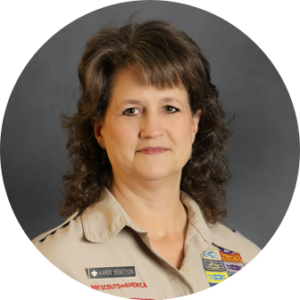- Commissioners
- Commissioners
- Commissioner Newsletter Summer 2022
- Rebuilding Your Commissioner Team
The
Commissioner
a publication for commissioners and professionals
Summer 2022
Rebuilding Your Commissioner Team
COVID-19 and uncertainty about the outcome of bankruptcy proceedings took a toll. But those issues are largely in the rear-view mirror and Scouting is looking to the future by concentrating on rebuilding, increasing membership, and growing the number of units to serve more youth. To support this future, commissioners must be prepared to support an increased number of new leaders. That means we need to rebuild our commissioner teams too.
To effectively rebuild commissioner teams, we need to do two things: recruit more commissioners and retain the ones we have.
I must confess I dislike the word ‘recruit.’ No one really wants to do it and it makes you feel like you are coercing someone into doing something they don’t really want to do. I thought about the word ‘recruiting’ when driving home from a Wood Badge beading ceremony recently. Wood Badge typically doesn’t struggle to find volunteers who are willing to serve in a staff role. And Philmont Training Center doesn’t seem to have a problem finding volunteers to serve on faculty for Commissioner Week. Yet almost every commissioner I know implies they have challenges recruiting new commissioners. Why is that? Perhaps because most volunteers consider it an honor to be asked to serve on Wood Badge staff or be on faculty at PTC.
What if we make it an honor to be part of the commissioner team? Rather than recruiting, let’s identify possible commissioners and invite them to be part of the team. Think about it. Would you rather be recruited or invited? Something as simple as changing our vocabulary, might alter the way we perceive recruiting and perhaps reenergize us so we can begin rebuilding our commissioner teams.
It is also critical that we retain experienced commissioners. The endless cycle of recruiting and replacing is exhausting and time consuming. Commissioners who already have a relationship with the unit provide a sense of stability and have built a foundation of trust with unit leaders. Experienced commissioners are better equipped to tackle complex issues if they arise and are knowledgeable about the program, BSA policy and the recharter process. We need to recognize the value experienced commissioners bring to the team.
People stay where they feel valued. Make time to appreciate loyal commissioners. Recognize hard work by putting Scouters in for awards, praising good work, and offering event based social opportunities for those on your team. Don’t take high performers for granted either – recognition should be ongoing. Everyone needs to know they are a valued member of the team. If you recognize and draw attention to commissioners, you will also create a culture that attracts more people to your team.
As we work toward rebuilding Scouting, an actively engaged commissioner corps is crucial for supporting units. But rather than recruiting more commissioners and retaining current ones – let’s invite others to join the team and appreciate those we already have.













